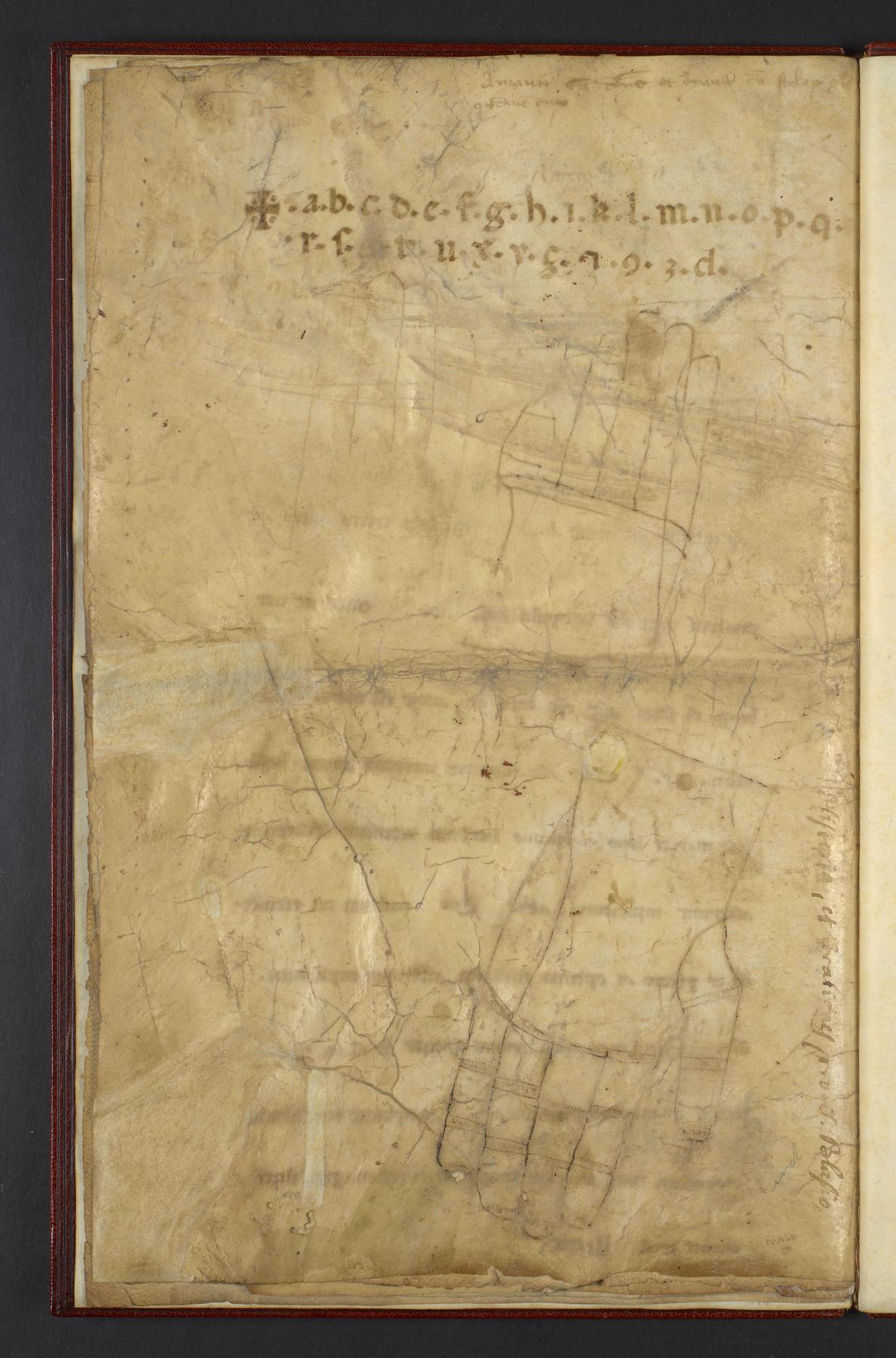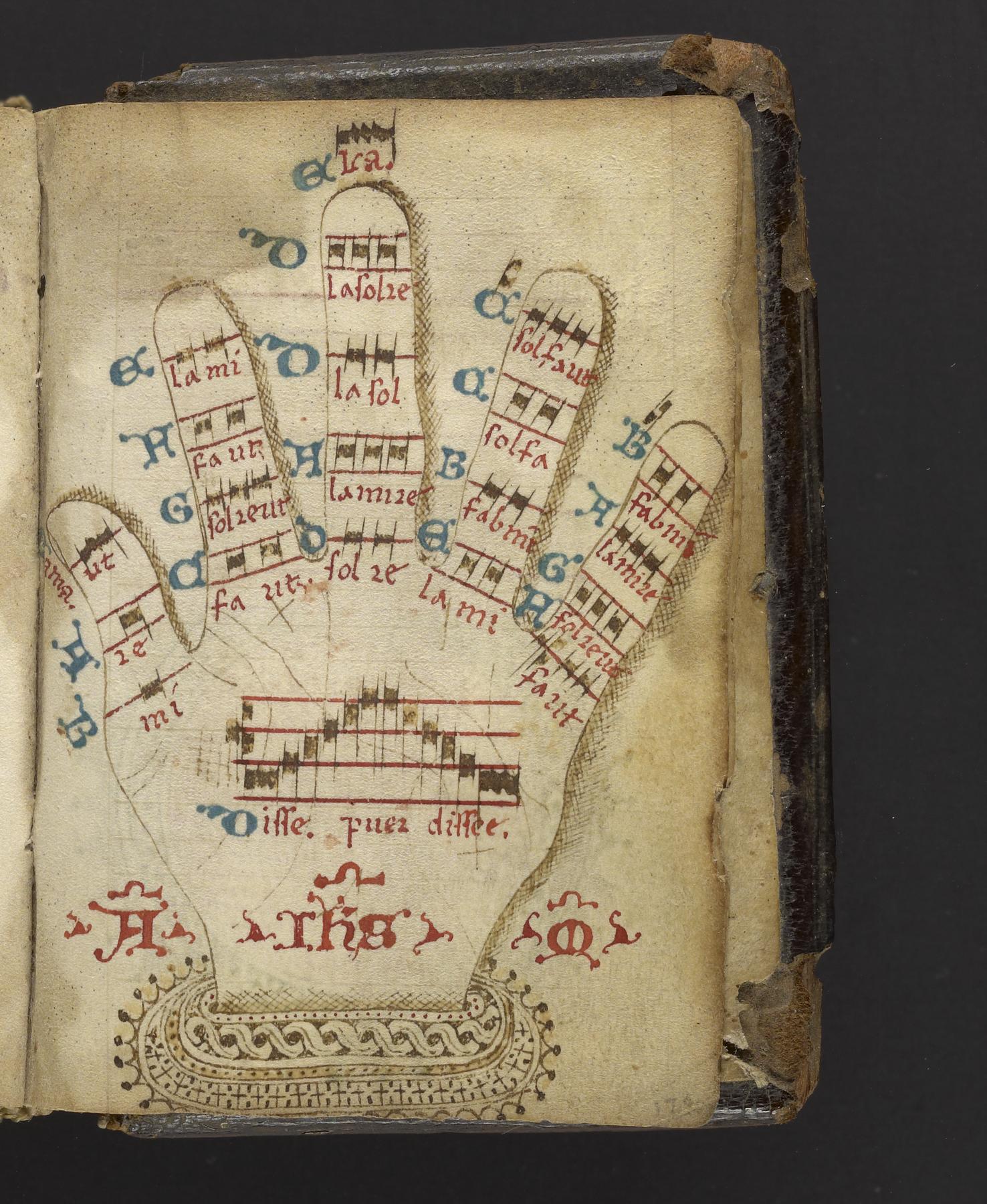- Dec 2023
-
libcal.library.upenn.edu libcal.library.upenn.edu
-
franklin.library.upenn.edu franklin.library.upenn.edu
-
colenda.library.upenn.edu colenda.library.upenn.edu
- Oct 2023
-
libcal.library.upenn.edu libcal.library.upenn.edu
- Sep 2023
-
en.wikipedia.org en.wikipedia.org
-
franklin.library.upenn.edu franklin.library.upenn.edu
-
https://www.youtube.com/watch?v=-rZIpsFE6Yw
Attended live on 2023-09-07
-
https://libcal.library.upenn.edu/event/11148297
9th-century copy of Boethius's Latin translation of Aristotle's De interpretatione, referred to in the manuscript as Periermenias, with the shorter of two commentaries that Boethius wrote on that work. Replacement leaves added in the 11th century to the beginning (f. 1-4) and end (f. 45-64) of the manuscript, in addition to providing the beginning and end of the Boethius (which is probably lacking 2 gatherings between extant gatherings 6 and 7), include the Periermeniae attributed to Apuleius in the medieval period, a poem by Decimus Magnus Ausonius on the seven days of Creation, a sample letter of a monk to an abbot with interlinear and marginal glosses, and other miscellaneous verses, definitions, and excerpts. Dot Porter, University of Pennsylvania, has determined that two groups of leaves are misbound; leaves 5-12 (the original order appears to have been 5, 9, 10, 6, 7, 11, 12, 8) and leaves 53-64 (the original order of the leaves appears to have been 61, 62, 53-60, 63, 64).
-
-
www.reddit.com www.reddit.com
-
For those interested in the history of classical education, manuscripts, books, and knowledge transfer, the University of Pennsylvania Libraries and the Shoenberg Institute have a potentially relevant ongoing zoom series called Coffee with a Codex in which they regularly bring out rare manuscripts, codices, incunabula, etc. from their collection to show and discuss.
Keep in mind that the presentation is done by library curators who may not be subject matter experts on the books they present, but the topics are nearly all relevant to classical education. Most attendees are academics, historians, medievalists, or regularly doing research in the areas of information studies and will often have thoughts, ideas, or experience with classical education, and may be able to answer questions about historical practices in the chat. Presentations are generally informal, short, and meant for a generalist audience. Quite often digital scans of the materials they present are available for browsing online or downloading for further study.
See the full schedule for Coffee with a Codex three weeks ahead at https://schoenberginstitute.org/coffee-with-a-codex/
To give folks an idea of the presentations, recordings of Coffee With A Codex since January 2022 are available at their YouTube Playlist. (To my knowledge they don't archive copies of their chat transcripts where the participants are usually fairly active, but some of the chat does make it verbally into the recorded discussion.)
Of particular interest this coming week is a presentation on a book which will touch on the recent conversation "Ancient Textbooks for Ancient Curriculums?" by u/psimystc with respect to the Carolingian educational program in the 9th-11th centuries.
https://libcal.library.upenn.edu/event/11148297
Details
Date: Thursday, September 7, 2023<br /> Time: 12:00pm - 12:30pm
Coffee with a Codex: Boethius and Aristotle <br /> On September 7, Curator Dot Porter will bring out LJS 101, a 9th and 11th century copy of Aristotle translated by Boethius, created as part of the Carolingian educational program. See the record: https://franklin.library.upenn.edu/catalog/FRANKLIN_9951865503503681
Free registration is required. https://libcal.library.upenn.edu/event/11148297
An informal lunch or coffee time to meet virtually with Kislak curators and talk about one of the manuscripts from Penn's collections. Each week we'll feature a different manuscript and the expertise of one of our curators. Everyone is welcome to attend. Welcome back for 2023-2024!
Syndication link: https://www.reddit.com/r/ClassicalEducation/comments/16a1oyi/coffee_with_a_codex_at_penn_libraries_recurring/
-
- Mar 2022
-
schoenberginstitute.org schoenberginstitute.org
- Dec 2021
-
schoenberginstitute.org schoenberginstitute.org
- Nov 2021
-
schoenberginstitute.org schoenberginstitute.org
-
LJS 418, f. 3r, the remnants of a sewing repair with thread remaining
In parchment manuscripts one will often see small pin prick holes in the parchment which indicates that a hole in the animal skin was repaired during processing. Usually after curing and before use the thread from the repair is removed leaving only the small holes.
Rarely, but occasionally, the thread will still remain in the final manuscript. An example of this is LJS 418, f 3r where one can see the thread left in the page.

-
The smudged line indicating where the quire would have been originally folded is clear in the center of the folio.
Smudged or worn lines on manuscripts may be indicative of a manuscript having been unbound and potentially folded and possibly carried during regular use.
LJS 418 f. 6v shows an example of this pattern though the manuscript was later bound.
-
-
en.wikipedia.org en.wikipedia.org
-
Mentioned at Coffee With a Codex on 2021-11-01 with an example on the closing pages of LJS 418, which isn't very clear/good, and another in MS Codex 1248, which is in a tiny manuscript, but very clear and lovely.


-
-
bibliophilly.library.upenn.edu bibliophilly.library.upenn.edu
- Oct 2021
-
en.wikipedia.org en.wikipedia.org
-
https://en.wikipedia.org/wiki/Historiated_initial
I wonder if these still exist in the new spaces of productivity porn in within journaling? Perhaps the application of stickers in peoples' planners sort of serves some of this functionality, though I'd consider them to be more in the drollery family.
-
- Aug 2021
-
twitter.com twitter.com
-
Not sure it was recorded, but it's an ongoing series if you're interested in the area: https://schoenberginstitute.org/coffee-with-a-codex/
-